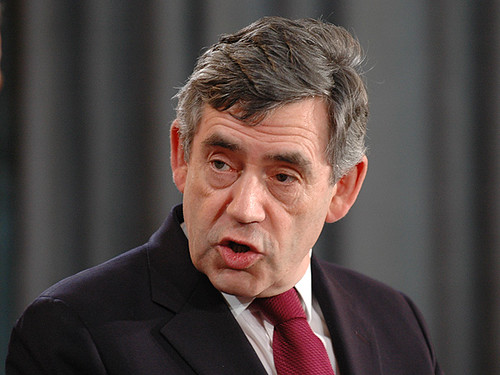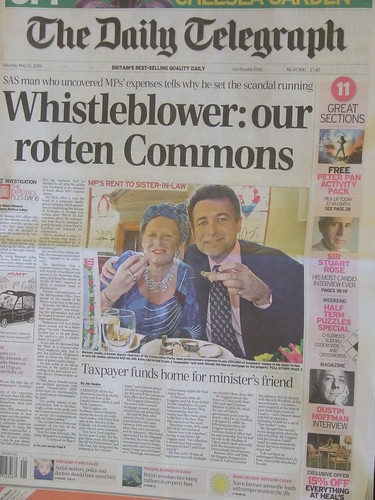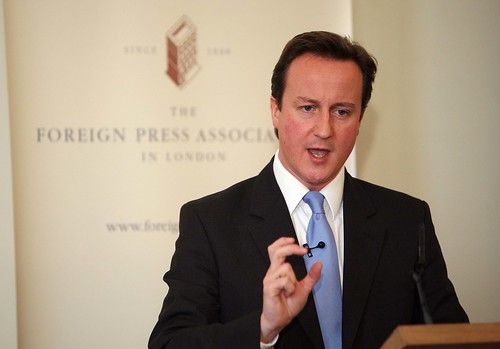
Well he’s gone ahead and
done it. David Cameron has made good on his
leadership contest pledge four years ago to leave the mainstream centre-right party in the European Parliament and form a new
anti-federalist minority party, the
“European Conservatives and Reformists” group. Considering the big impact this will have on the UK’s influence in the EU, I’ve been shocked (and frankly a bit disgusted) by the barely perceptible amount of coverage yesterday’s announcement received in the British media.
The new block will be the fourth largest in the parliament, which sounds big until you realize that the parliament is made up of
three main blocks (the conservatives, the socialists, and the liberals) and then a whole lot of side parties. Really, it’s a bit like bragging that the Democratic Unionist party is the fourth largest block in the
British House of Commons, both in terms of size and influence. Ideologically it would be more like the 7th largest Commons party Sinn Fein actually, considering the Tory MEPs apparently don’t think their constituents should be part of the EU in the same way Sinn Fein doesn’t believe their constituents should be part of the UK.
 The Tories’ allies in the party are a ragtag group of mostly Eastern European far-right parties including Poland’s PIS and the Czech Republic’s ODS, but the Tories are the overwhelming majority in the party (they needed to join with MEPs from at least 8 member states to form a Brussels party, and they met the bare minimum). Leaving the EPP, which is currently the largest party in the parliament and is also the party of the Commission President (the most powerful position in the EU), will mean a huge loss of power for the UK in shaping EU policy. Tory MEPs will lose all of the committee seats they had held by virtue of being part of the largest bloc, and as members of a small party they will be unlikely to be chosen as rapporteurs – the people who escort legislation through the parliament and shape the changes the parliament will make. This defection, along with the increased seats for the UK Independence Party and the two new seats for the BNP, means the UK will effectively not be using 30 of its 72 seats.
The Tories’ allies in the party are a ragtag group of mostly Eastern European far-right parties including Poland’s PIS and the Czech Republic’s ODS, but the Tories are the overwhelming majority in the party (they needed to join with MEPs from at least 8 member states to form a Brussels party, and they met the bare minimum). Leaving the EPP, which is currently the largest party in the parliament and is also the party of the Commission President (the most powerful position in the EU), will mean a huge loss of power for the UK in shaping EU policy. Tory MEPs will lose all of the committee seats they had held by virtue of being part of the largest bloc, and as members of a small party they will be unlikely to be chosen as rapporteurs – the people who escort legislation through the parliament and shape the changes the parliament will make. This defection, along with the increased seats for the UK Independence Party and the two new seats for the BNP, means the UK will effectively not be using 30 of its 72 seats.
I nearly spit out my drink last night when I saw the way Channel 4 News mentioned the official formation of the party. It was literally the last item in their quick news roundup, a 10 second sentence tossed in as a seeming afterthought. It was the same on the BBC, and this is after the British media basically completely ignored the issue during the run-up to the Parliament election. Newsnight was the only show I saw that gave the issue more than passing lip service, and that was only in a roughly two minute interview with a correspondent in Brussels.
To the extent that today’s papers have covered the development at all, they’ve tended to focus on salacious details about the unsavoury characters the Tories have chosen to align themselves with, Both the Daily Mail and the Guardian devoted most of their articles to this aspect, rather than on the loss of influence for the UK in Brussels. The Financial Times was the only paper I saw that focused on the loss-of-influence angle, quoting Labour party officials as saying the Tories have ‘moved to extremism in allying with the extreme right’. The FT quotes foreign secretary David Miliband as saying Cameron has throw away influence in Europe "in favour of ideological isolationism".
What’s Next for the ECR?
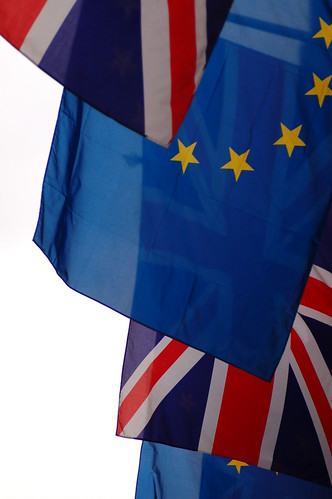 So what was the point of this move? It’s hard to tell what productive purpose this could possibly serve other than scoring political points back home, tapping into the ever-popular Europhobia in Britain. The stated reasoning is that the EPP was too federalist in its attitude, and the Tories wanted to form a new party to oppose moves that would give Brussels any more power, and advance moves that would give power back to the individual member states. That’s all well and good except for the fact that the parliament has very little to do with such issues. The parliament doesn’t make legislation, it merely approves it. It is in the Commission, the EU’s executive branch, where law is made. And it is in the Commission where any decisions about the makeup, membership or structure of the EU are taken. So there’s really very little a minority party could hope to achieve in the parliament in terms of “opposing federalism”.
So what was the point of this move? It’s hard to tell what productive purpose this could possibly serve other than scoring political points back home, tapping into the ever-popular Europhobia in Britain. The stated reasoning is that the EPP was too federalist in its attitude, and the Tories wanted to form a new party to oppose moves that would give Brussels any more power, and advance moves that would give power back to the individual member states. That’s all well and good except for the fact that the parliament has very little to do with such issues. The parliament doesn’t make legislation, it merely approves it. It is in the Commission, the EU’s executive branch, where law is made. And it is in the Commission where any decisions about the makeup, membership or structure of the EU are taken. So there’s really very little a minority party could hope to achieve in the parliament in terms of “opposing federalism”.
The Tories argue, however, that losing British influence in the short term is worth the sacrifice if in the long term they can eventually form a viable, strong anti-federalist party that could put the kibosh on Commission attempts to further integrate and harmonize EU law. While this could be true, with the way the parliament works their little party would have to grow exponentially in order to have that kind of influence, and with their lack of interest in Europe it’s hard to see the Tories grabbing the bull by the horns for that project. It’s strange that a national party that is not very interested in Europe and indeed quite internally divided by the subject would choose to take on this quite ambitious project of “reforming” the EU.
And perhaps therein lies the problem with British euroscepticism. So much of what the UK does to resist EU federalism are empty gestures, symbolic grumblings of discontent that do nothing to advance British interests and instead shut the Brits out of influence in Brussels. They are quite simply cutting off their nose to spite their face.
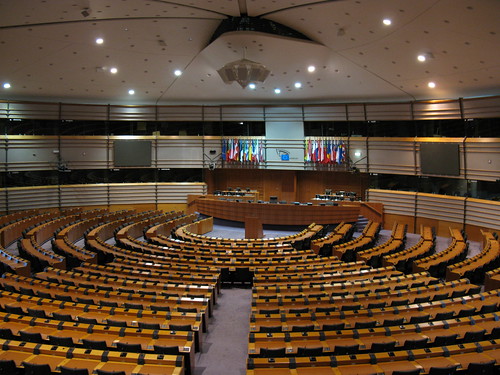 It will be interesting to observe where this drama goes from here, though after months of following this subject I suspect this is the end of the story rather than the beginning. The Tories are unlikely to take much of an interest in this new party they’ve formed, and it will probably sit in the back of the parliament somewhere in stagnation, all but forgotten by the rest of Brussels. A few of the Tory MEPs will probably stop showing up to vote at all now that their position in the parliament has been so substantially weakened.
It will be interesting to observe where this drama goes from here, though after months of following this subject I suspect this is the end of the story rather than the beginning. The Tories are unlikely to take much of an interest in this new party they’ve formed, and it will probably sit in the back of the parliament somewhere in stagnation, all but forgotten by the rest of Brussels. A few of the Tory MEPs will probably stop showing up to vote at all now that their position in the parliament has been so substantially weakened.
Who knows, I could be wrong. The far-right fascist parties that were given seats across Europe have given indications that they would like to join, which would not only increase the size of the party but also spice it up a bit. But the Tories are almost certain not to let them in - and why would they, when they already got their requisite number of foreign MEPs from eight countries? I suspect the end goal here was really just to form a party, not for the party to actually accomplish anything.
 Throughout my travels around Europe one of my favourite things to do is observe the differences between countries – and if you’re someone who enjoys a drink or two, many of those observable differences can often be found at bars.
Throughout my travels around Europe one of my favourite things to do is observe the differences between countries – and if you’re someone who enjoys a drink or two, many of those observable differences can often be found at bars.




















